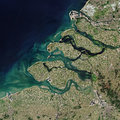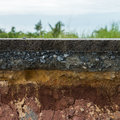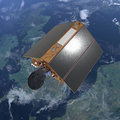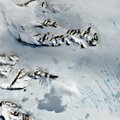Archive
20 February 2023
16 million to keep the Dutch delta livable - even as it changes

Deltas and coastal plains are attractive places to live: fertile, flat, and open to the sea. These lowlands are, however, also vulnerable to climate change and sea-level rise. It was announced today that Δ-ENIGMA, a project focusing on this formation of the delta landscape, is one of the projects that will be funded from the National Roadmap for Large-Scale Research Infrastructure (LSRI) call of the Dutch Research Counsil (NWO)
20 February 2023
€18 million for research on the sustainable use of our subsurface

Increased use of the subsurface, for example for geothermal energy production or subsurface storage, is crucial for achieving the (inter)national goals for greenhouse gas emissions. Today it was announced that EPOS-eNLarge, a research project that focuses on efficient and safe use of the Dutch subsurface, is one of the projects to be awarded through the Dutch Research Council (NWO) Large-scale Research Infrastructure call. The 10-year project will receive 17.9 million euros from NWO.
13 February 2023
Traffic flow on A4 Leiden improved by driving advice

Will traffic flow improve when motorists are assisted in their choice of main or parallel lanes? The answer is yes. Rijkswaterstaat, TU Delft and Zuid-Holland Bereikbaar conducted a pilot project in collaboration with Flitsmeister in the past months.
31 January 2023
Extra Earth observation studies to better understand effects of climate change

The NWO honoured eight TU Delft research projects for Earth observation and planetary research. Several studies will start within the CEG faculty that will help us better understand the Earth's climate system.
26 January 2023
Cold ice shelves Antarctica more vulnerable than previously thought

Some cold ice shelves in Antarctica, which researchers initially thought would remain stable over the coming centuries, turn out to be vulnerable in the event of further global warming. This conclusion results from a study led by Utrecht University and on which Stef Lhermitte and Bert Wouters from Delft University of Technology contributed.